简体中文
繁體中文
English
Pусский
日本語
ภาษาไทย
Tiếng Việt
Bahasa Indonesia
Español
हिन्दी
Filippiiniläinen
Français
Deutsch
Português
Türkçe
한국어
العربية
The Rising Threat of Financial Fraud: A Warning to the Baby Boomer Generation
Abstract:Baby Boomers are under siege from advanced financial scams—find out how these sophisticated fraud tactics work and how you can shield yourself from becoming a victim.
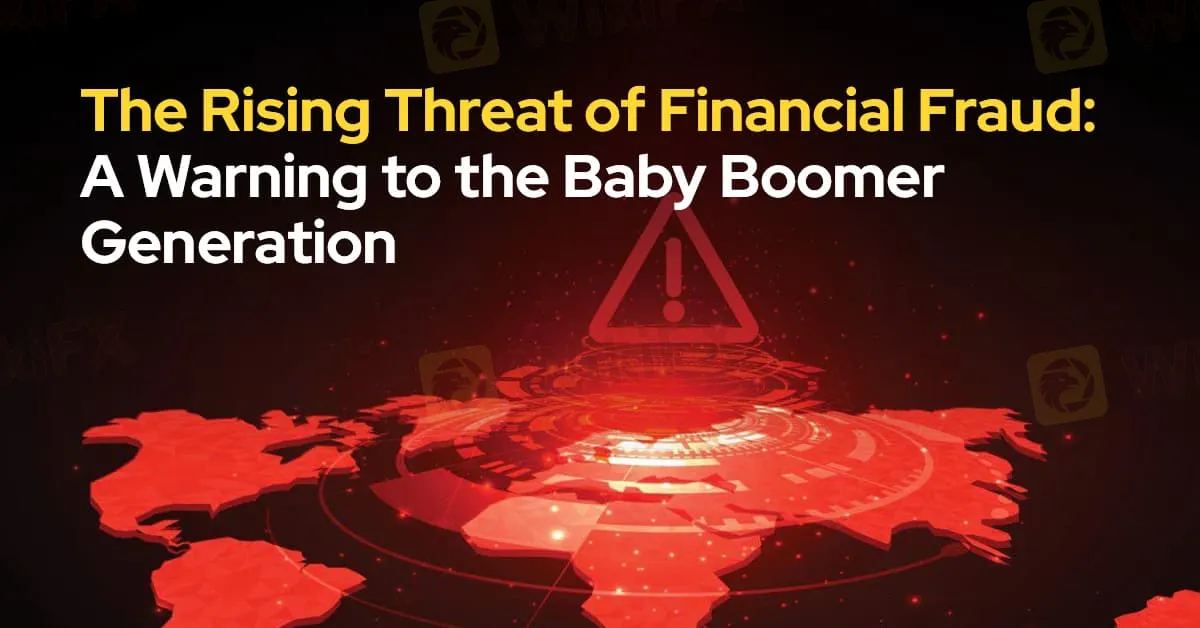
Despite widespread awareness about financial scams, the evolving tactics of fraudsters have significantly impacted the Baby Boomer generation. According to the FBIs 2023 data, complaints to the Internet Crime Complaint Centre have risen by 14%, with losses reported by individuals aged 60 and above increasing by 11%.
Ed Mahaffy and Patrick Marcinko, financial planners at Go Banking Rates, have identified four prevalent scam methods and highlighted how advancements in technology, including artificial intelligence (AI), are contributing to the digital evolution in banking and investment sectors. Due to their lack of experience with digital technologies and frequent online activity, Baby Boomers are particularly vulnerable to these scams.

Fraudsters may pose as officials from agencies such as the IRS to steal money or personal information. Marcinko notes that many Baby Boomers are nearing retirement or are already retired, making them prime targets for IRS impersonation scams. It is crucial to remember that the IRS will never contact individuals via phone calls or text messages. The FBI reports a 32% increase in government impersonation scams last year. To avoid falling victim, refrain from providing payment information over the phone to unsolicited contacts.

Scammers may use technology to mimic the voice of someone familiar, making it increasingly difficult to detect such frauds. Marcinko explains that fraudsters might impersonate a child's voice to request money, complicating the verification process. If you encounter this scenario, hang up and call your child directly to confirm their safety.

Fraudsters pretending to be technical support personnel may deceive older adults by claiming their accounts have been compromised. They then persuade victims to download software that allows remote access to their computers. These scammers, posing as bank officials or other trusted figures, will instruct victims to transfer funds to a so-called “secure” account, which actually directs the money to the scammers. Mahaffy emphasizes that these “ghost hacker” scams typically involve receiving a call, text, email, or pop-up message instructing the victim to call a number for help, followed by downloading harmful software.

With the rise of online shopping, phishing scams targeting the Baby Boomer generation have surged. Scammers may impersonate retailers to send password reset emails, which, once the password is entered, are used to access and steal from the victims accounts. Additionally, phishing attacks might involve sending fake invoices or receipts. Opening these documents can trigger the automatic download of malicious software designed to steal personal information and access financial assets. Marcinko advises using multi-factor authentication wherever possible to enhance account security.
Mahaffy cautions against engaging with unfamiliar digital activities. Be wary of clicking on pop-ups or links, responding to unknown phone calls, or downloading unsolicited software. Staying vigilant and informed is essential to protecting oneself from these increasingly sophisticated financial threats.

Disclaimer:
The views in this article only represent the author's personal views, and do not constitute investment advice on this platform. This platform does not guarantee the accuracy, completeness and timeliness of the information in the article, and will not be liable for any loss caused by the use of or reliance on the information in the article.
Read more
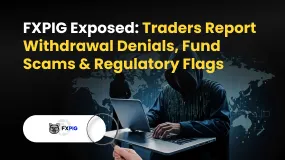
FXPIG Exposed: Traders Report Withdrawal Denials, Fund Scams & Regulatory Flags
Do you face massive losses due to astonishing spreads at FXPIG? Have you witnessed multiple trade executions by the Georgia-based forex broker even though you wanted to execute a single order? Has this piled on losses for you? Is the FXPIG withdrawal too slow? Maybe your trading issues resonate with some of your fellow traders. In this FXPIG review article, we have shared these issues so that you can introspect them thoroughly before deciding on the best forex trader.
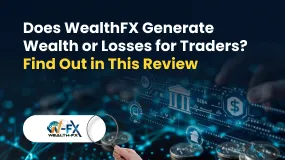
Does WealthFX Generate Wealth or Losses for Traders? Find Out in This Review
The name WealthFX sounds appealing for all those wishing for a rewarding forex journey. However, behind the aspiring name are multiple complaints against the Comoros-based forex broker. These trading complaints dampen the broker’s reputation in the forex community. In this WealthFX review article, we have shared some of these complaints here. Take a look!
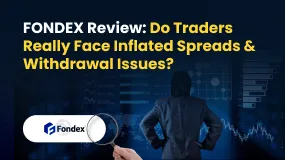
FONDEX Review: Do Traders Really Face Inflated Spreads & Withdrawal Issues?
Does FONDEX charge you spreads more than advertised to cause you trading losses? Does this situation exist even when opening a forex position? Do you witness customer support issues regarding deposits and withdrawals at FONDEX broker? Does the customer support official fail to explain to you the reason behind your fund loss? In this article, we have shared FONDEX trading complaints. Read on!
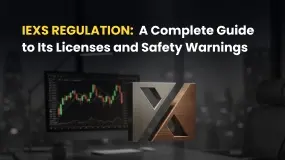
IEXS Regulation: A Complete Guide to Its Licenses and Safety Warnings
When choosing a broker, every trader's biggest concern is safety and trust: is it regulated? For IEXS, the answer isn't simply YES or NO. While the company says it's regulated by trusted authorities, looking closer shows a complicated and worrying situation with mixed evidence and serious risks. What they claim on the surface doesn't match up with official warnings, license problems, and many bad user experiences. This article gives you a detailed, fact-based look into IEXS regulations, breaking down their official licenses, what their trading platform is really like, and real stories from traders who have used it. Our goal is to give you the facts so you can make a smart decision about keeping your money safe.
WikiFX Broker
Latest News
Trillium Financial Broker Exposed: Top Reasons Why Traders are Losing Trust Here
FIBO Group Ltd Review 2025: Find out whether FIBO Group Is Legit or Scam?
Amillex Withdrawal Problems
Is INGOT Brokers Safe or Scam? Critical 2025 Safety Review & Red Flags
150 Years Of Data Destroy Democrat Dogma On Tariffs: Fed Study Finds They Lower, Not Raise, Inflation
CQG Partners with Webull Singapore to Power the Broker’s New Futures Trading Offering
【WikiEXPO Global Expert Interviews】Ashish Kumar Singh: Building a Responsible and Interoperable Web3
Trump: India\s US exports jump despite 50% tariffs as trade tensions ease
IEXS Review 2025: A Complete Expert Analysis
CySEC Flags 21 Unauthorized Broker Websites in 2025 Crackdown
Currency Calculator




